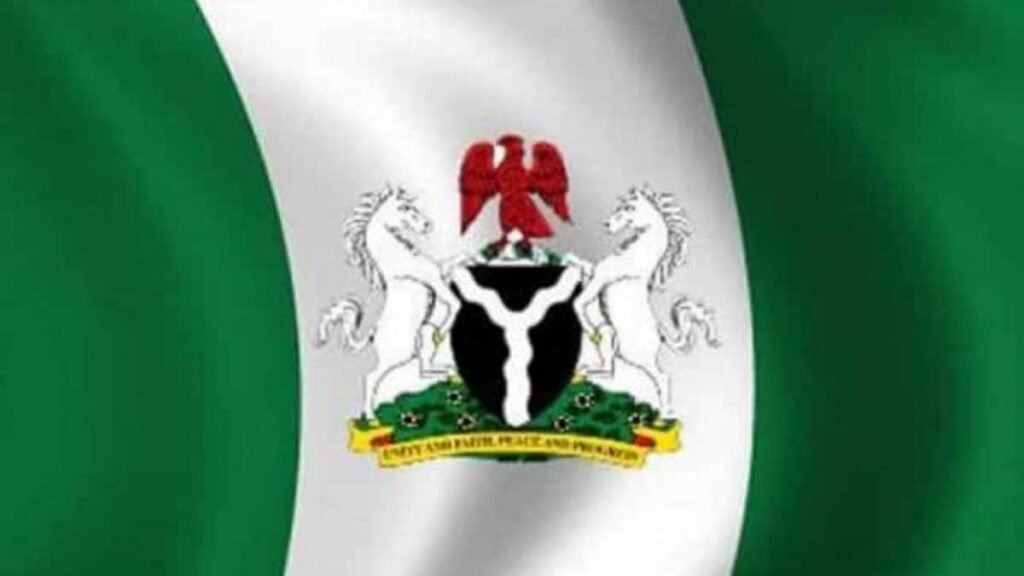The Hierarchy of Nigerian Citizens, The federal government of Nigeria is composed of three distinct branches: legislative, executive, and judicial, whose powers are vested by the Constitution of Nigeria in the National Assembly, the President, and the federal courts, including the Supreme Court, respectively.
The Constitution provides separation and balance of powers among the three branches and aims to prevent the repetition of past mistakes made by the government.
The leadership structure in Nigeria outlines the way in which government officials are ranked according to the public position they occupy.
The Hierarchy of Nigerian Citizens, Note that these political positions according to the 1999 constitution state the roles and power of these selected Nigerian Citizens, the particular individuals hold the highest position in various arms of government at all levels.
Nigeria is a federal republic, with executive power exercised by the president. In the Hierarchy of Nigerian Citizens, the president is the head of state, the head of government, and the head of a multi-party system.
Nigerian politics takes place within a framework of a federal, presidential, representative democratic republic, in which executive power is exercised by the government.
The Hierarchy of Nigerian Citizens Legislative power is held by the federal government and the two chambers of the legislature: the House of Representatives and the Senate.
Together, the two chambers make up the law-making body in Nigeria, called the National Assembly, which serves as a check on the executive arm of government.
The Hierarchy Of Nigerian Citizens
This article herein Glass Suite will educate you on the Hierarchy of Nigerian Citizens, their positions, and powers.
First Citizen Of Nigeria
The Hierarchy of Nigerian Citizens, The president of the Federal Republic of Nigeria is the first citizen of most if not every country,
which occupies the highest position which is The Grand Commander of the Federal Republic of Nigeria (GCFR) also The Commander in Chief of the Nigerian Armed Forces. The president’s family is the first in the country.
Second Citizen Of Nigeria
The vice-president is the second citizen of Nigeria. The vice president’s position and power are also stated in the constitution,
Note if by any means the president-elect is incapable of leading or in the worst-case scenario dead, the 1999 constitution allows that the vice president should be sworn in as the next president of the country.
The vice president’s title is the Grand Commander of Order of the Niger (GCON). Note that the same rules and regulations apply to the state level.
Third Citizen Of Nigeria
The senate president is the 3rd citizen of Nigeria in the hierarchy of Nigerian citizens. He is the head of the National Assembly and he presides over the higher chambers of the legislative arm of government if the vice president is incapable to lead or dying, Note the 1999 constitution permits the senate president to take over.
In the National Assembly house which has 109 members, 108 members are elected for four-year terms in 36 three-seat constituencies, which correspond to the country’s 36 states. One member is selected in the single-seat constituency of the federal capital.
Fourth Citizen Of Nigeria
The speaker of the House of Representatives occupies the 4th position and power in the country. The speaker of the house presides over the lower chambers of the legislative arm of government and his title is Office of the Order of the Niger (OON).
The House of Representatives has 360 members, who are elected for four-year terms in single-seat constituencies, despite its official position “below” the upper house, in many legislatures worldwide.
The lower house has come to wield more power or otherwise exert significant political influence. The lower house typically is the larger of the two chambers.
Fifth Citizen Of Nigeria
The Secretary to the Federal Government is the 5th citizen of Nigeria. But there are lots of arguments on the position of being the 5th citizen.
This should be because the office of the SGF is not an elected office and can be fired at most like every other employee of the president, and subject to the approval of the senate.
Conclusion
In the Hierarchy of Nigerian Citizens, The legislators are elected to either the House of Representatives or the Senate to be representatives of their constituencies and to pass legislation to benefit the public.
The legislative process consists of bills being drafted and presented in either of the two chambers. These bills can only become national law once they are approved by the president of Nigeria.
